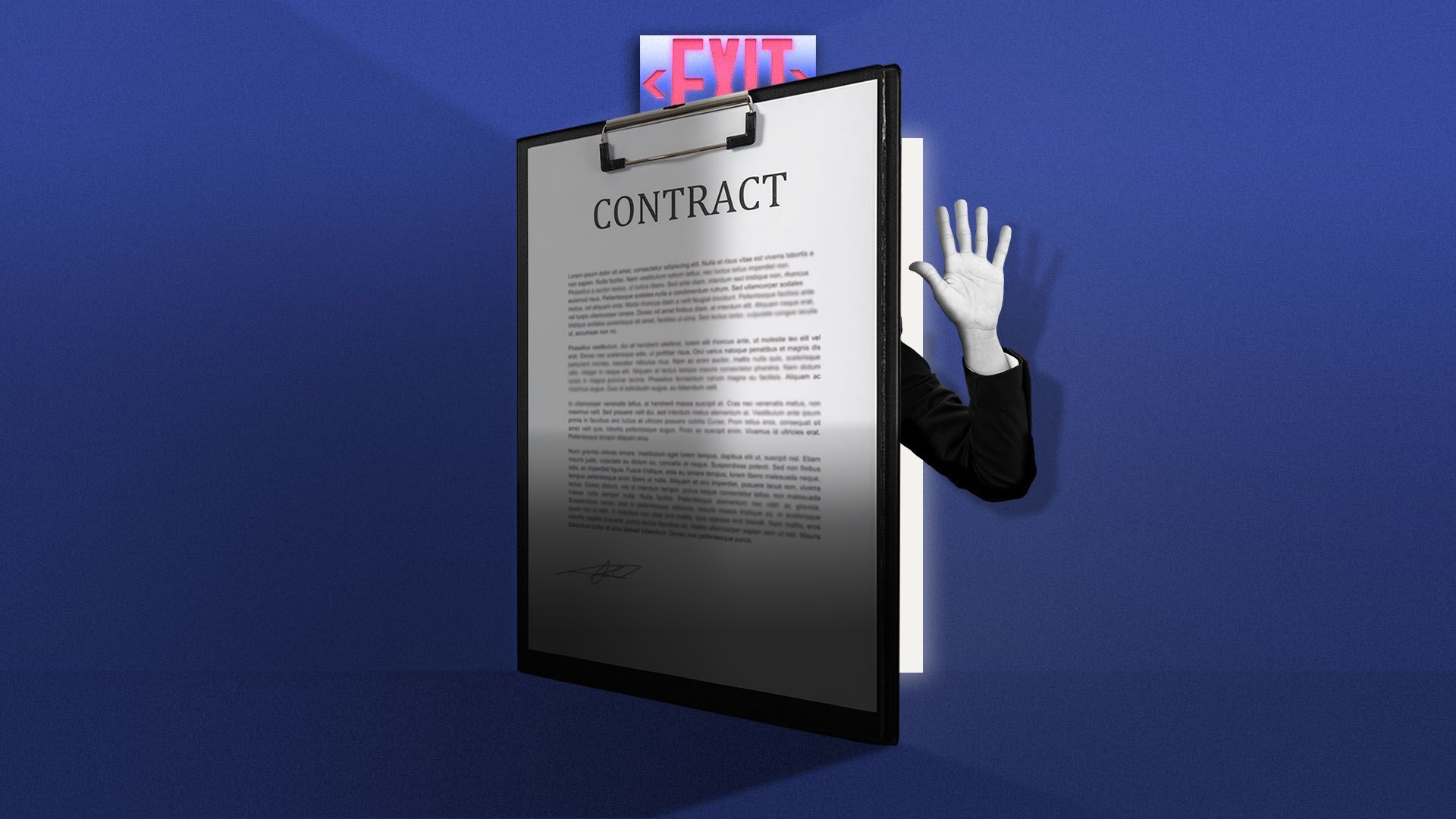Why Yelp wants to ban noncompete agreements
Add Axios as your preferred source to
see more of our stories on Google.

Illustration: Sarah Grillo/Axios
In public comments out Tuesday evening, online review site Yelp makes a forceful argument in favor of the Federal Trade Commission's proposed ban on noncompete agreements.
Why it matters: There's general consensus, even in the business community, that lower-paid hourly workers shouldn't be forced to sign noncompetes — but Yelp argues that subjecting senior executives to these contracts is bad for business, too.
- "Such clauses are generally bad for employees subject to them, employers that want to freely and fairly compete for those employees, and consumers who may end up paying more and getting less from a marketplace distorted by non-compete clauses," the company writes.
How it works: Noncompete agreements typically prevent employees from taking a new job at a competitor for a certain period of time — often more than a year — after they leave their current employer.
Driving the news: Yelp's comments come in just under the wire; Wednesday marks the end of the public comment period for the FTC's proposed rule.
- Businesses tend to wait to the last minute to speak up.
Zoom in: Yelp, in its comments, opens up about a recent non-compete imbroglio it went through, after it tried to hire a Groupon executive, Sung Shin, as Yelp's vice president of product management in 2021.
- Shin had been working at Groupon for just seven months when he gave notice of his intention to resign. Groupon told him he couldn't take the job because Yelp was a competitor.
- Groupon told Shin he had essentially two options: Stay at Groupon, or stay on until he could find a job at a company that Groupon didn't deem a competitor, according to a court filing.
- Groupon wound up filing suit against Shin to prevent him from taking the job. He lost at the district court level — and was prohibited from working for Yelp for a year-and-a-half.
- He appealed, but it was too late. "[A]ny ruling on that appeal would have come far too late to save the job he desired at Yelp," the company explains.
Zoom out: Yelp's experience highlights how noncompetes diminish competition for workers, Yelp points out.
- Meanwhile: In California, where Yelp is headquartered, noncompetes have been banned since the 19th century — and the state is known as a place where startups and competition flourish, Yelp points out.
- To protect trade secrets, Yelp has employees sign confidentiality agreements.
The intrigue: The rise of remote work complicates the situation. Shin was living in Washington state, which restricts noncompetes, but Groupon is headquartered in Illinois, which permitted them at the time.
- These inconsistencies add up to uncertainty for companies trying to hire.
The other side: The Chamber of Commerce, and more than 280 trade groups and organizations, submitted a comment Monday strongly opposing the ban — it argues that noncompetes are good for competition, and for businesses.
- It says that noncompetes help to protect trade secrets and to keep turnover lower.
- Plus, it says, the FTC doesn't have the authority to enact such a widespread prohibition.
A Groupon spokesperson pointed to the district court ruling in its favor, noting it said the company would be at a "serious competitive disadvantage" and face irreparable harm if Shin worked for a competitor without an 18-month pause. A Washington court later weighed in, ruling partially in Yelp's favor.
What's next: The FTC will review the comments and then publish a final rule, possibly before the end of the year, experts tell Axios.
- Some observers believe the rule will ultimately be a bit more watered down than the initial proposal — maybe adding exceptions for those who get significant compensation for signing a noncompete.
- The Chamber of Commerce has already said it would file a lawsuit to prevent any rule from being enacted.
